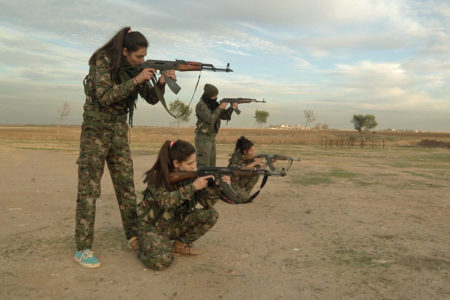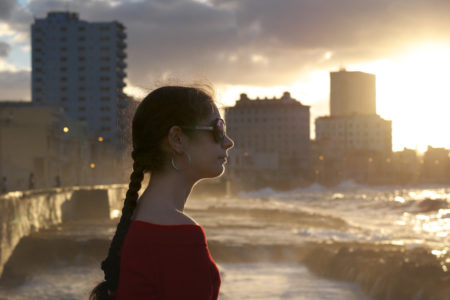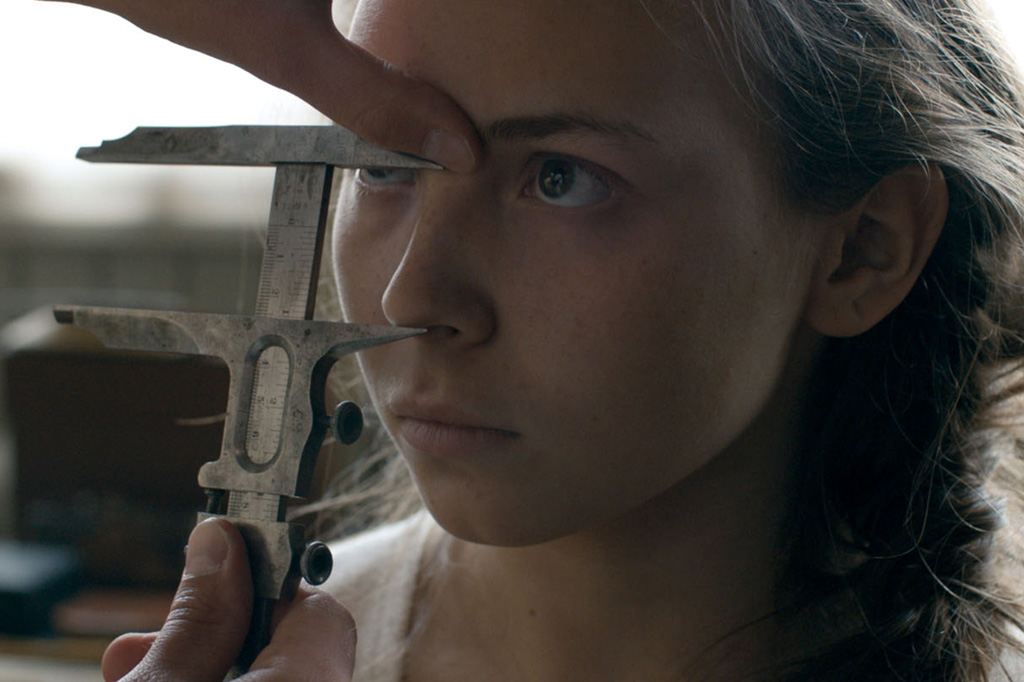Peggy Elliott Goldwyn, founder of the Family of Woman Film Festival—which this year is themed “Women on the Margins” and runs Feb. 27 to March 4, 2018 in Sun Valley—is at first glance a long way from where she started her career and, at the same time, is pursuing a passion that seems perfectly in following from her long experience in Hollywood.
As a 22-year-old in 1966, Goldwyn became the extremely rare woman writing comedy for TV shows such as “The Odd Couple,” “That Girl,” and “Happy Days.” Though she has joked about being the “the only unbearded writer” in the room back then, that kind of minority experience—good or bad—has to sink in to one’s consciousness. And then, in 1969, she and her then-husband, Samuel Goldwyn, started and ran for years an independent film company that specialized in bringing foreign films to the U.S.
So, it seems somewhat fitting that Goldwyn is now consumed with scouring the world for outstanding films that tell the story of women, who, almost by definition in many countries, are “on the margins.” And this year’s festival, the 11th annual, focuses on the stories of people even further marginalized, those who are disabled in some way, older, in a political minority, or survivors of rape and other violence.
“It sounds like a downer,” Goldwyn acknowledged. “But all of the films are about people who have found a way to break through.”
This year’s festival, which is sponsored by Women Deliver, includes three documentaries—“Girls’ War,” “Mama Colonel,” and “Tocando la Luz”—and three dramas: “Sami Blood,” “Poetry,” and “In Syria,” all of which will be shown at the Sun Valley Opera House. The films are from all over the world: Cuba, the Democratic Republic of Congo, the Kurdish region of Iraq, South Korea, Sweden, and Syria. Two of the films, “Mama Colonel” and “In Syria,” will also be screened at Boise State University—a sponsor of the festival—on Feb. 27 and 28, respectively.

Scene from “Girls’ War”
Among the hundreds, if not thousands, of independent films made each year, Goldwyn searches for two qualities. First, the films must present “… honest personal stories about real issues,” she said. “You can tell if someone is skewing a story because they have a point of view and that’s what they want to promote. It has to be honest.” Second, “It has to be a damn good piece of filmmaking, and, by that, I mean of a certain technical quality, and it has to be emotionally involving, a film that tells a personal story.”
For example, the documentary “Girls’ War” tells the story of Kurdish women who have taken up arms in Syria and Northern Iraq against ISIS and the forces of the despot Bashar al-Assad. These women without a country are fighting to create a society in which men and women are treated equally.
In “Mama Colonel,” a female colonel in a special police force of the Democratic Republic of Congo (DRC) seeks to help women who have been traumatized by rape and violence against their families. The DRC civil war was one of the first conflicts in which rape was used as an instrument of war. As the colonel wades in to the effort to help these people, she learns of many other victims, some of whom claim to be the government “authorized victims.” The question of who exactly is a victim is one the colonel grapples with.

Scene from “Tocando la Luz”
“Tocando la Luz” follows three blind Cuban women and details how they have managed to create a life for themselves in modern-day Cuba. The film was made by Jennifer Redfearn, who also made the Academy Award-nominated film, “Sun Come Up.” Redfearn will be showing that film and speaking at the Filmmaker Retrospective event 6 p.m., Wednesday, Feb. 28 at the Community Library in Ketchum.
A Swedish drama, “Sami Blood,” concerns a 14-year-old Sami girl, a member of the indigenous people of Scandinavia also known as Lapps. When faced with the overt racism toward her culture and people in 1930s Sweden—including the measurement and biological study of them as if they were of another species—the girl changes her name and moves away to assimilate as a “Swede.” Later in life, she is forced to reconcile the choices she has made with a loss of her heritage.
A South Korean film, “Poetry,” is the story of Mija, a grandmother facing the early stages of Alzheimer’s disease while raising her daughter’s teenage son. Mija finds her voice in poetry only after standing up to a group of classroom fathers intent on covering up a rape that had led to a student suicide. Director and screenwriter Lee Chang-dong won the award for best screenplay at the Cannes Film Festival.
“In Syria” is the final drama slated for the 2018 festival. Set in Damascus, the film explores the tensions created when an assortment of characters are holed up in an apartment for fear of a sniper lurking outside, as well as the ongoing civil war raging through the country. French director Philippe Van Leeuw will be attending the festival and introducing his film.
In addition to the speakers already mentioned, Goldwyn plans to have Maria Cavalcanti, head of Pro Mujer, a women’s development organization in South America, deliver the Bonni Curran Memorial Lecture at 6:30 p.m., Tuesday, Feb. 27, at St. Thomas Episcopal Church in Ketchum. Also, Goldwyn will bring in a speaker from the United Nations Population Fund who will discuss gender violence. The name of the speaker and the timing of that talk have not yet been released.


